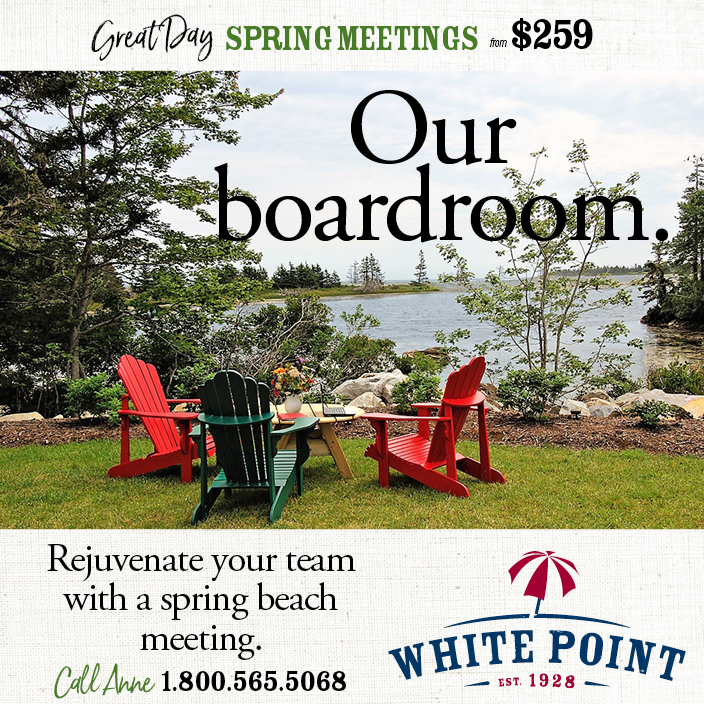Publishing Twice a Week
The Macdonald Notebook is your source for exclusive Business & Inside Politics publishing every Saturday and Sunday.
Latest Issue
Baltimore Bridge: Could It Happen In Port of Halifax? Part VI
Exclusive: Last Weekend Port of Halifax Faced Closure To Large Ships – Here’s Why…
Alison Strachan: Fond Memories of Lunenburg’s Joy Saunders
Dalhousie’s Role as ‘Civic University’ More Relevant than Ever: President Kim Brooks
Authors Gather In Halifax For Book Reading Events
In This Harbour Town, Affordable Iconic Fishing Captains’ Mansions For Under $400,000
MacPolitics: MacLeod Wins Pictou West Nod
Liberals Could Face Contested Nomination In Pictou West
Saturday Edition, Below
Alison Strachan: Something’s Got To Change And I’m Not Alone In Thinking This Way
Sandra Bryant Downsizing Office Needs, Expects Busy Season
Containerized Cargo Volume Down Dramatically In Port Of Halifax
Halifax Port: Board Member Carol Ann Miller Goes On Overseas Trip. Will She Suffer Diana Dalton’s Fate?
St. Martha’s Regional Hospital: A Snoop Looked At Health Records Of Thousands Of Antigonish Patients And Was Fired
MacPolitics: Jamie Baillie: We Need A Halifax Mayoral Contender Who Can Coalesce Tory-Liberal Support
MacPolitics: Brad Johns Out Of Houston Cabinet After Epidemic Remark
MacPolitics: Michelle Livingston Has Left The Building
That Is The End Of The Saturday Edition
Check Out The Notebook Archives For 7,200 stories Since Founding Year of 2017
A & W Offers Cod Burgers Again — 30 Years After Northern Cod Fishery Collapse
Jun 8, 2019 | To Be Filed
Return Home
Contact The Editor
Articles by Topic
- Art Hustins Jr: Life & Times (4)
- Baltimore Bridge: Could It Happen In Port of Halifax? (7)
- Barry Rofihe's Life & Times (5)
- Cabot Links (142)
- Chester Notes (69)
- Dan Leger's Book On Stephen McNeil (11)
- Electric vehicles Feature (12)
- Halifax Downtown Grocer Wars: Arthur's Takes On Pete's (4)
- Immigration: One Million NS Residents - Features (20)
- Jim Vibert Columns (18)
- John Carroll's Incredible Life & Times (7)
- John Risley: The Book - Net Worth (6)
- Lunch With Alison (83)
- Lunenburg Common Lands (62)
- Maritime Business (125)
- Melford Container Terminal (5)
- Millennial Entrepreneurs (42)
- NATO's Halifax Tech HQ (6)
- NS Liberal Cover-Up Coverage (70)
- NSLC (1)
- NSLC/Craft Beer/NS Wines (166)
- Pasta Primavera's Yarmouth Creation (12)
- Porsche Of Halifax Features (8)
- Premier's Office: Abrupt Departure Of Trusted Politcal Aide (7)
- Restaurants (91)
- Seafood Recipes By Home Chef Gary Phillipe (10)
- Taxing Out Of Province Homebuyers - News Features (33)
- The Donair Features (14)
- The Incredible & Significant Life & Times Of John MacDonell (4)
- The Incredible Life & Times of Butch Heisler (6)
- The Life & Times Of John Young & Carol Young (14)
- The Life & Times Of Terry Burns - Pro Golfer & Expert Sailor (5)
- The Notebook Seal Of Approval (4)
- Tom Peters' Golf Tour (28)
- Trudeau Gov Won't Fund Large Road Twinning (4)
- Truro Inland Cargo Terminal Project (20)
- Women In Non-Traditional Occupations (6)



